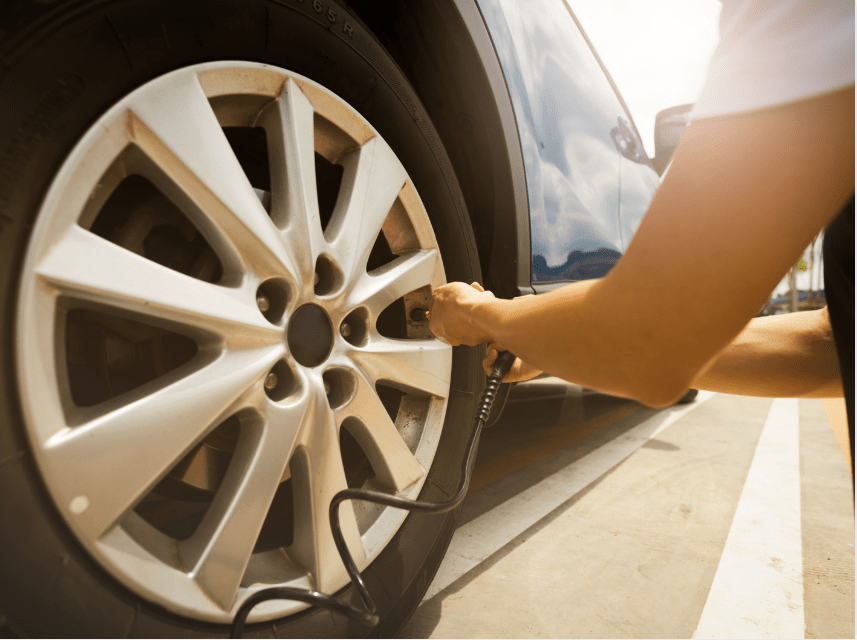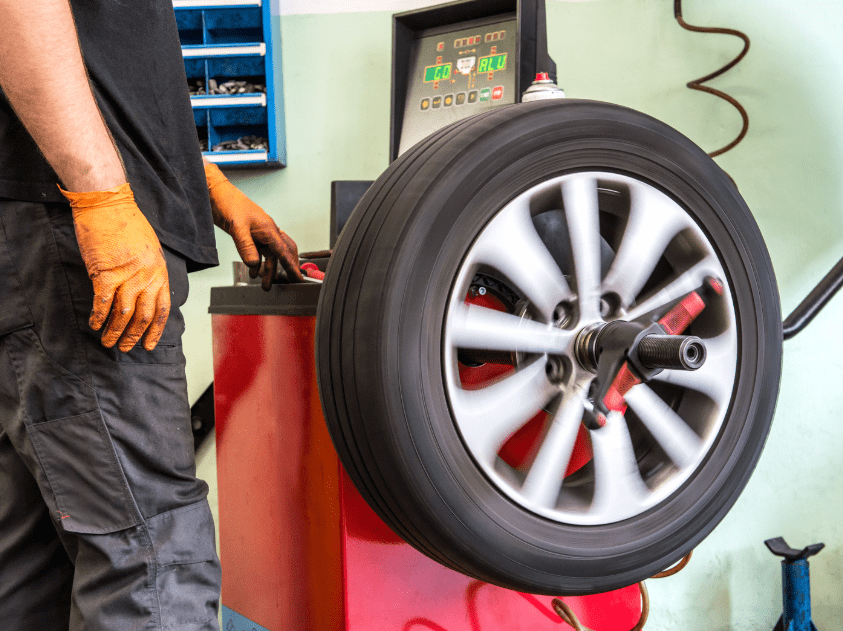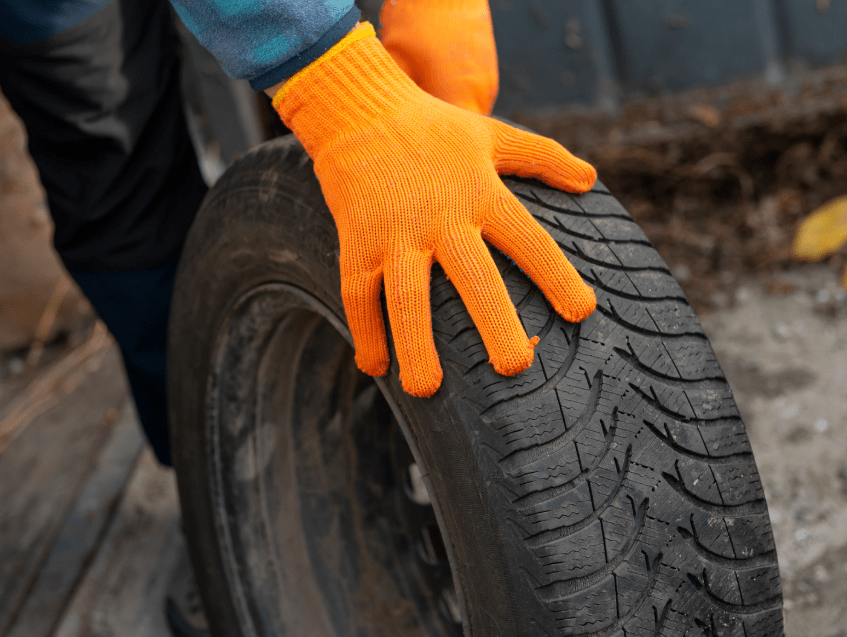The Importance of Properly Inflated Tyres in Preventing Punctures
Maintaining the safety and efficiency of your vehicle depends on properly inflated tyres, which also greatly help to avoid punctures. Maintaining the recommended pressure level for your tyres not only increases fuel efficiency and vehicle performance but also greatly lowers the chance of tyre damage and punctures.
We will explore key reasons in this extensive article why keeping appropriate tyre pressure is essential for avoiding punctures and guaranteeing a pleasant driving experience.
1. Guaranteeing Maximum Tyre Performance
The whole surface of a tyre makes even contact with the road when tyres are kept at the right pressure. This equal distribution of pressure guarantees optimal performance of the tyre, therefore providing better grip and handling. Over- or under-inflated tyres may cause unequal wear patterns, which increases their susceptibility to punctures. Maintaining the correct tyre pressure guarantees that your tyres run as they should, therefore reducing the chance of damage from hazards on the roadways.
2. Increasing fuel economy
Correctly filled tyres lower rolling resistance, therefore increasing fuel economy. More friction generated by under-inflated tyres against the road drives the engine to run harder and burn extra fuel. Not only does this higher friction reduce fuel efficiency, but it also causes too much heat, which can compromise tyre structure and increase puncture likelihood. Maintaining the proper tyre pressure helps you save petrol and lower the chance of tyre damage.
3. Boosting Tyre Durability
Consistent maintenance of the right pressure results in more durable tyres less prone to early wear and tear. Appropriate inflation helps to equally distribute the weight of the vehicle across the tyres, therefore relieving tension at any one spot. This uniform distribution of pressure reduces the emergence of weak areas capable of causing punctures. As a result, well-cared-for tyres often last longer and are more resistant to punctures from road trash or blunt items.
4. Decreasing the Blowout Threat
An increased risk of blowouts is among the most perilous effects of poor tyre inflation. Because of too much friction, under-inflated tyres may overheat and cause abrupt, disastrous breakdowns. On the other hand, overinflated tyres are stiffer and may explode upon being hit with road trash. Both situations greatly increase the puncture danger. Properly inflated tyres reduce blowouts, therefore improving general driving safety.

5. Encouraging Even Tyre Wear
Appropriately inflated tyres wear more consistently than those that are not. Uneven tyre wear may produce thinner areas of tyre tread that are more likely to puncture. Keeping the right tyre pressure guarantees that the tread wears uniformly, therefore lowering the possibility of thin areas and punctures. Furthermore adding to a safer and more pleasant driving experience is even tyre wear, which helps to smooth out the ride.
6. Early Tyre Issue Detection
Frequent tyre inflation maintenance helps you identify other tyre problems early on. Monitoring your tyre pressure might reveal gradual leaks, punctures, or damage that could otherwise go undetectable until it presents a major issue. Early identification lets you schedule timely repairs or replacements, therefore averting more major problems downstream and lowering the puncture risk.
7. Boosting Traction and Control
Especially in bad weather, keeping appropriate tyre pressure guarantees maximum contact between the tyre and the road, therefore improving traction and control. Under-inflated tyres may produce poor handling and longer braking distances, which increases the difficulty in avoiding road hazards that could puncture tyres. Maintaining proper tyre pressure improves the ability to manoeuvre your car and helps to prevent sharp items or trash on the road.
8. Stopping Sidewalls from Damage
Usually, under-inflated tyres cause the tyre sidewalls to flex and bend more. Constant bending weakens the sidewalls over time and increases their susceptibility to road dangers. Because they cannot be readily fixed and often need tyre replacement, punctures in the sidewall are very harmful. Correct inflation lowers sidewall flexing, thereby lowering the chance of sidewall punctures and prolonging the general lifetime of your tyres.
9. Minimising Harm Damage
Appropriately inflated tyres help to absorb shocks from road hazards such as uneven surfaces, trash, and potholes. Because they lack the required stiffness to efficiently absorb shocks, underinflated tyres are more prone to suffer damage from these impacts. Furthermore lacking in sufficient cushioning are overinflated tyres and excessively stiff tyres. Maintaining the right tyre pressure lowers the chance of collision damage and the consequent punctures.
10. Boosting general security
Correctly inflated tyres greatly increase general vehicle safety. Important in avoiding accidents are improved handling, stability, and braking performance they guarantee. At high speeds, unexpected loss of control brought on by punctures may be lethal. Maintaining correct tyre pressure lowers the possibility of punctures and increases the safety of your car for other drivers as well as for yourself.
Wrapping Up
One easy yet efficient approach to avoiding punctures and improving the general performance, efficiency, and safety of your car is keeping well-inflated tyres. By guaranteeing the best tyre performance, durability, fuel economy, and traction, blowouts, sidewall damage, and uneven wear are less likely.
Frequent tyre pressure checks not only assist in identifying early tyre problems but also lessen the effect of road dangers. In conclusion, good tyre inflation is a fundamental component of car maintenance that guarantees a safer driving environment and helps to avoid punctures.
In terms of safety, fuel economy, and tyre lifetime, spending a little effort to keep properly inflated tyres pays rewards. Understanding the need for appropriate tyre inflation and including frequent inspections in your car maintenance schedule can help you to prevent punctures, avoid unplanned breakdowns, and have a better, secure driving trip.


